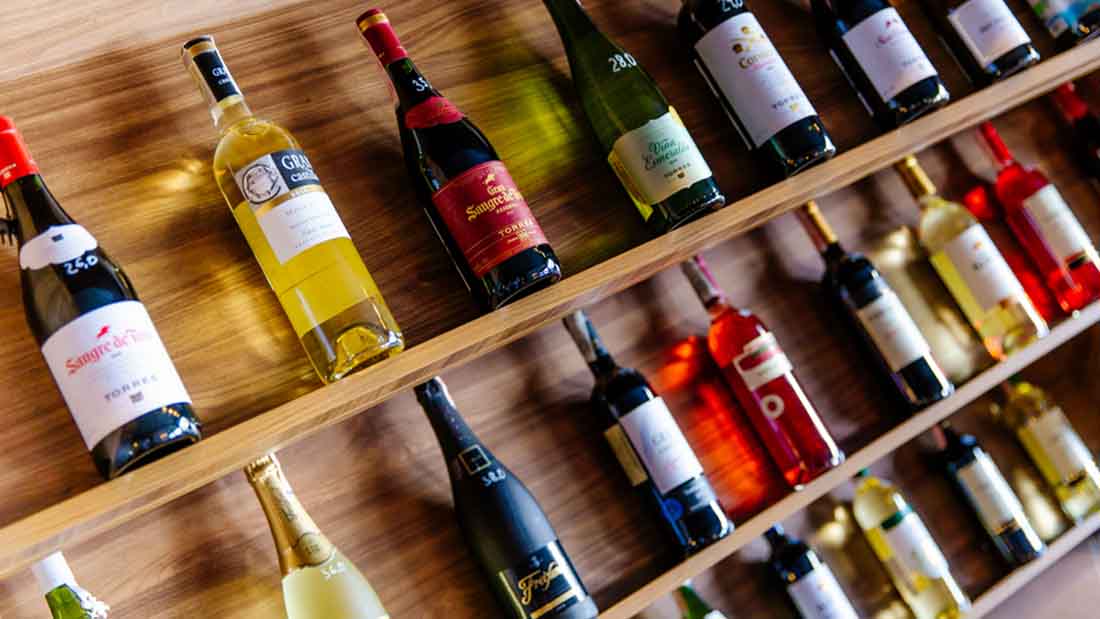
11 Feb What Is The Right Humidity Level For Your Custom Wine Cellar?
Most wine collectors recognize the critical nature of maintaining a specific temperature range inside a wine cellar. Many, however, miss the significance of humidity and the effect it can have on wine. To understand more about humidity in a wine cellar and the necessity of climate management, here is some information to help you decide what is best for your reds and whites.
Why Should A Wine Cellar Owner Be Concerned About Humidity?
Much of the anxiety about humidity is related to wine corks. If wine corks become dry, they can compromise the bottle seals causing the wine to age prematurely by allowing air into the beverage. Even if the seals are intact, opening bottles with dried-out corks is difficult and frequently results in cork inside the wine. If the bulk of your wines has cork, humidity levels should be closely monitored and regulated. Humidity does not affect plastic, metal, glass, or other closures.
Cork is a natural substance that degrades over time. Although the cork’s base comes in contact with the wine, its top is in contact with air, which influences its condition. If the air is excessively dry, the cork’s top will dry up, shrink, and crack, allowing air to reach the wine.
While the damage will not occur immediately, it will have a detrimental effect on the wine’s quality over time. Increased humidity levels will assist in preventing the cork from wearing and drying out. Relative humidity should be between 50% and 70%. Anything less than 50% will dry out the cork jeopardizing the wine’s integrity.
How Do You Regulate The Humidity Level In A Wine Cellar?
Climate control systems can be used to regulate the temperature and relative humidity in a wine cellar, making a wine cellar’s climate control system a critical aspect of the installation. Maintaining the ideal temperature and humidity levels in a cellar will prolong the life of a wine collection until it reaches its optimal drinking age. Climate control companies offer various options based on the customer’s requirements and the layout of the wine cellar.
What Are The Various Types Of Climate Control Available?
Climate control is a critical component of wine cellar design. Given the variety of alternatives for wine cellar cooling systems, it’s crucial to understand the purpose of a temperature control system, its capabilities, and why someone would pick a chilled vs. passive wine cellar. As previously stated, the recommended relative humidity level for a cellar is between 50% and 70%.
This high humidity helps retain moisture within the wine bottle instead of permeating the cork and eventually evaporating. Temperatures that are too hot or too cold (or fluctuate significantly) are reasons for installing climate control systems, as is an excess of or a deficiency of humidity. This is how various solutions work.
A ducted system is self-contained and adaptable, making it one of the most adaptable cooling systems available. Their simple installation and maintenance make them ideal for humidity and temperature control. A split system provides superior air distribution and excellent temperature/humidity control for optimal conditioning.
Through-wall systems are ideal for small to medium-sized cellars because they provide excellent air movement and maintain an acceptable temperature and humidity level. Humidifiers are offered as integrated or standalone devices for ducted or ducted split systems for consumers desiring humidity without temperature regulation.
How Do You Determine Which Type Of Humidity Control Is Best For Your Custom Wine Cellar?
For the best results and to maintain an appropriate humidity level in your wine cellar, it’s essential to consult with a wine cellar specialist who can provide advice on the most suitable humidity control system. Humidity is either a friend or foe of a wine collection. Understanding its importance in wine cellar installation, the critical role of climate management can ensure the longevity of your wine collection.
For more details about our custom wine cellar designing and installation services, call Signature Cellars on 1300 570 636. Our experts are here to help you develop the ideal custom wine cellar for your requirements. While planning this installation, they will consider all crucial aspects, so your excellent wine bottles get the ideal indoor environment.
Thanks for reading,
Signature Cellars
1300 570 636




No Comments